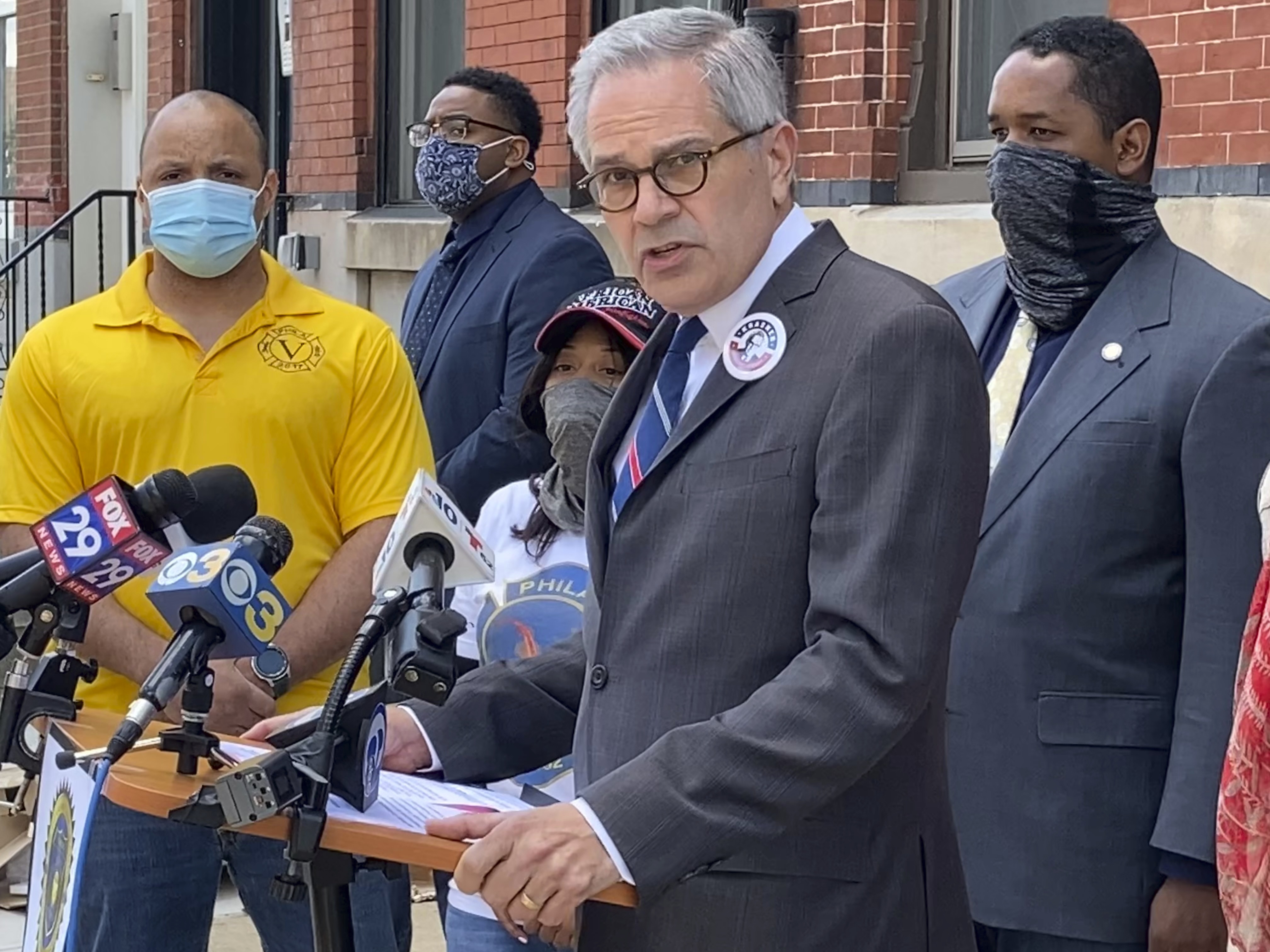What to Know
- Pennsylvania voters became the first in the nation to impose restrictions on a governor’s authority under an emergency disaster declaration.
- They approved constitutional amendments sped to a statewide referendum Tuesday by Republican lawmakers angry over how Democratic Gov. Tom Wolf handled the pandemic response.
- The vote on Tuesday’s primary ballot came as Republican lawmakers across the country have sought to roll back the emergency powers governors wielded during the COVID-19 pandemic.
Pennsylvania voters became the first in the nation to curb their governor’s emergency powers, approving constitutional amendments proposed by Republican lawmakers angry over Democratic Gov. Tom Wolf’s handling of the COVID-19 outbreak.
The vote on Tuesday's statewide primary ballot came as Republican lawmakers across the country have sought to roll back the emergency powers governors wielded during the COVID-19 pandemic.
Republicans see the referendum as a victory with strong political overtones, as the state gears up for a wide-open governor's race in 2022 and Wolf leaving office after two terms.
Get top local stories in Philly delivered to you every morning. >Sign up for NBC Philadelphia's News Headlines newsletter.
Republicans in the state Legislature and those aiming to replace him in 2023 have made Wolf their top political target, repeatedly attacking his stewardship during the pandemic, including his orders shuttering businesses, sending students home for online schooling and ordering masks worn outside the home.
“Last night, Pennsylvanians voted to reject Democrat Gov. Tom Wolf’s overreach of executive powers after his failed COVID response — a clear sign of accountability coming in 2022,” Republican National Committee chair Ronna McDaniel tweeted Wednesday morning.
The two questions led with almost 54% of the vote, with 75% of precincts reporting. More than 2 million ballots were cast, still less than a quarter of the state's 8.7 million registered voters.
LIVE ELECTION RESULTS: For the latest returns in the Pennsylvania primary, including ballots questions and statewide judicial races, click here for NBC10's live tracker.
Wolf had opposed them, but has no say in what proposals lawmakers put on ballots to amend the state constitution.
History was on Republicans’ side. The last time voters rejected a ballot question was in 1993, according to information provided by the state.
The amendments cannot take effect until the state certifies the election result, which could take until early June. In the meantime, the governor's emergency disaster declaration for the pandemic was set to expire midnight Thursday, the governor's office said.
That raised the question of whether Wolf will renew it. His office was silent about it Wednesday.
The questions asked voters to end a governor’s emergency disaster declaration after 21 days and to give lawmakers the sole authority to extend it or end it at any time with a simple majority vote.
Before Tuesday, the constitution required a two-thirds majority vote by lawmakers to end a governor's disaster declaration and, legally, the governor could issue an emergency declaration for up to 90 days and extend it without limit.
Wolf and his emergency disaster director have called the proposals reckless and a threat to a functioning society that could prevent a fast and wide-ranging response to increasingly complicated disasters.
Republicans accused Wolf of fear-mongering.
Sending the questions to the ballot — including a constitutional amendment to override a law — was the only way for Republican lawmakers to reel in Wolf's authority, or that of future governors.
Wolf had vetoed more than a half-dozen different bills designed to restrict his authority under a disaster declaration.
Courts rejected repeated attempts to end the governor’s disaster declaration or lift his orders, and Democratic lawmakers largely stuck with Wolf, leaving Republicans without a large enough majority to override his actions.
In any case, the effect is in dispute.
Republicans claim the governor cannot order shutdowns without an emergency declaration in effect. Wolf disagrees, saying a governor’s authority during a public health emergency rests on separate public health law and is unaffected by the ballot questions.
As a result, it may end up in court.



